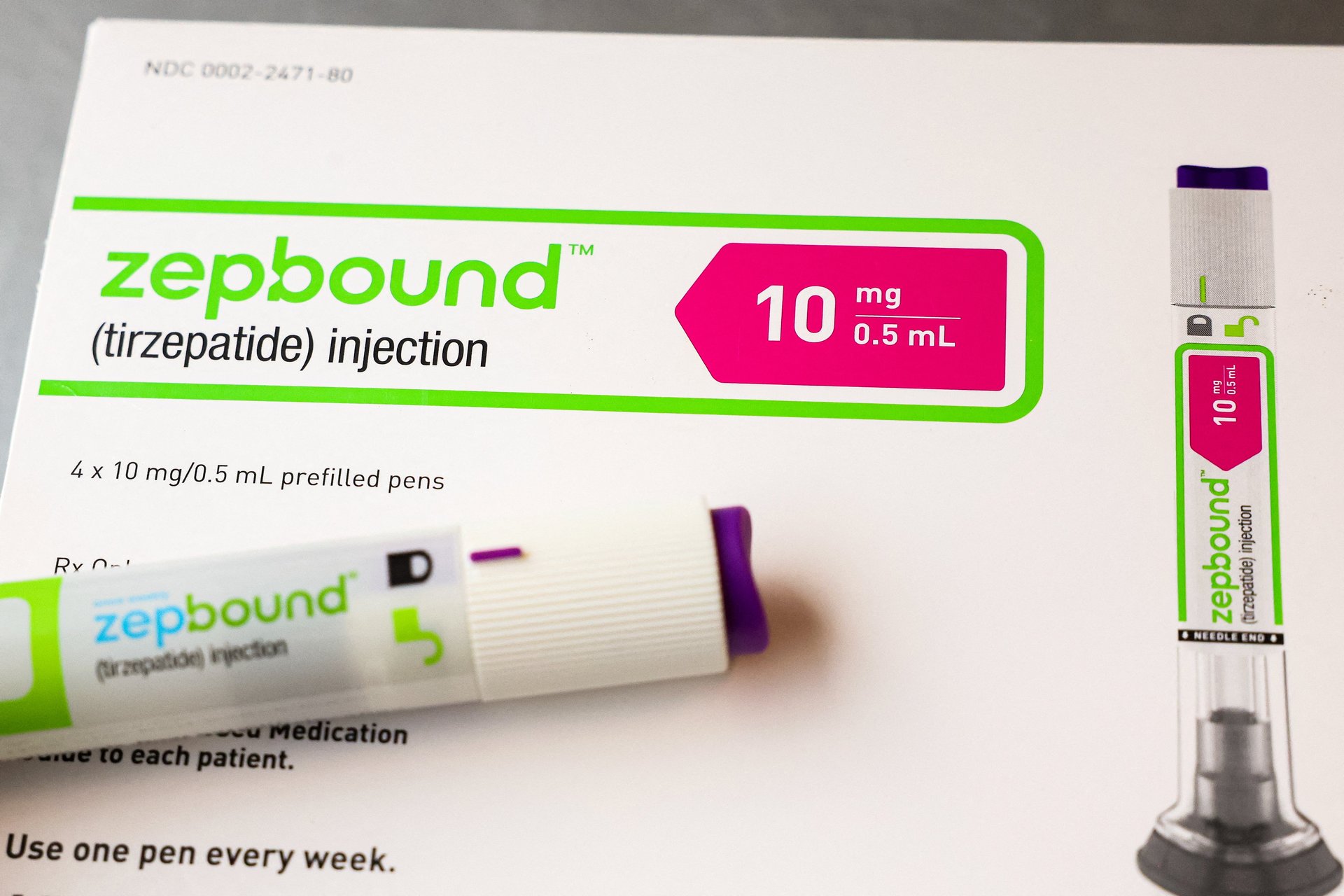Eli Lilly's weight loss drug Zepbound could help treat sleep apnea — paving a way to Medicare coverage
If federal regulators expand the approved use of Zepbound to include sleep apnea, the medication could join Novo Nordisk's Wegovy in being covered by Medicare

Eli Lilly announced today that the drug behind Zepbound was found to help alleviate sleep apnea in patients with obesity in late-stage clinical trials. The medication, tirzepatide, is sold by the company in the United States as Mounjaro for diabetes and Zepbound for weight loss.
Suggested Reading
The pharma giant said on Wednesday that it’s planning to seek approval from the U.S Food and Administration (FDA) to expand the use of the drug to include treating sleep apnea. That could open up access to the medication, too: If regulators expand the approved use of Zepbound the medication could join Novo Nordisk’s Wegovy in being covered by Medicare.
Related Content
The company’s stock jumped 3% during Wednesday morning trading.
The drug was tested on 469 participants with obesity and moderate to severe obstructive sleep apnea (OSA), a breathing disorder where a person’s upper way collapses completely or partially during sleep.
In a group that was not on a positive airway pressure (PAP) therapy — like what’s known as a CPAP machine — the medication reduced the average number of times a participants’s breathing showed a restricted or complete block of airflow by 27.4 events per hour (55%) from baseline after 52 weeks.
In another group, which continued on a PAP therapy for the 52 weeks, the average number of restricted or blocked breathing events was reduced by an average of 30.4 events per hour (62.8%). In addition, the two groups lost an average of body weight from baseline of 18% and 20%, respectively.
“OSA impacts 80 million adults in the U.S., with more than 20 million living with moderate-to-severe OSA,” said Jeff Emmick, the senior vice president, product development at Eli Lilly, in press release. “However, 85% of OSA cases go undiagnosed and therefore untreated.”
He added that tirzepatide could be the first drug to treat OSA, rather than merely treating the excessive sleepiness associated with the disease.
A path to Medicare coverage
The promising results could become a pathway for Zepbound to be covered by federal health insurance in the United States. In March, the U.S. Centers for Medicare and Medicaid Services (CMS) issued a new guidance stating that “that anti-obesity medications that receive FDA approval for an additional medically accepted indication can be considered a Part D drug for that specific use.”
The guidance was issued about a week after U.S. regulators expanded the approved use of Wegovy to include reducing heart risks for adults who are obese or overweight. Novo Nordisk announced results from a clinical trial that found the drug cut the risk of serious heart events by 20% roughly eight months earlier.
The ongoing weight loss drug shortage
Sykrocketing demand for weight loss drus have transformed Eli Lilly and Novo Nordisk into the most valuable pharmaceutical companies in the world. Eli Lilly, the maker of Zepbound, is the world’s tenth-largest company by market capitalization, at $720 billion. And sales of Novo Nordisk’s Wegovy and Ozempic even helped boost Denmark’s GDP in 2023.
But high demand for these drugs has also made it hard for some patients to have their prescriptions filled. The U.S. Food and Drug Administration said in April that two doses of Zepbound, along with some doses of the company’s diabetes medication Mounjaro, are in limited supply. The drugs will be in short supply through at least the end of April due to increased demand, the FDA said.
Novo Nordisk has been limiting starter doses of Wegovy since last year to ensure there’s enough supply for patients already on the drug. But the problem is compounding: Novo Nordisk CEO Lars Fruergaard Jørgensen said in March that the gap between demand for weight loss drugs and the supply is so significant that it will take years to close.